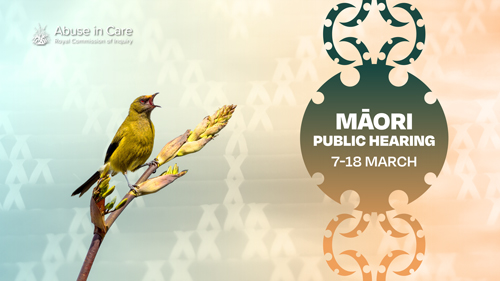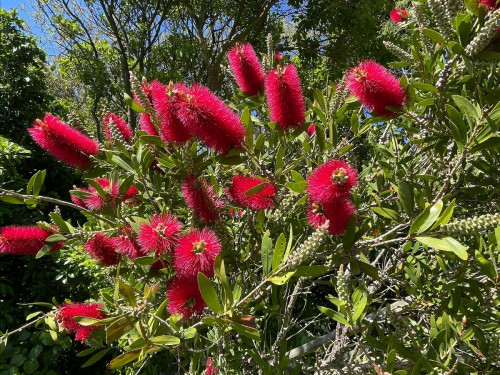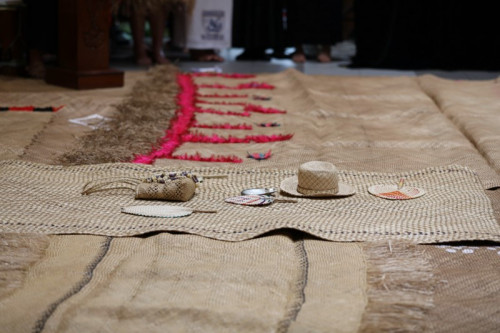Pānui May 2022 - Upcoming programme, Haerenga, Lake Alice update and community engagements
“He aha te mea nui o tēnei ao, he tangata, he tangata, he tangata”
There are few objectives that can be met without putting people first. This is particularly so when your objectives are large scale, time bound and resource intensive, such is the case for the Abuse in Care Royal Commission of Inquiry. The Royal Commission has remained steadfast in its commitment to people, and this won’t change.
We can give survivors this commitment - if it is your wish, we will hear your account and experiences. Your voice does matter.
Upcoming programme
As we enter our final 13 months, the Commission is working hard on ensuring we listen to survivors and are engaging with communities. We will hold wānanga to hear from groups and organisations who can contribute to the inquiry on specific topics and help us gather further information and evidence. We will also be travelling to communities to talk with them about their experiences.
The first haerenga, regional outreach will be to Kaikohe and Kaitaia in the mid and far North, later this month. Commissioners will be in Kaikohe for two days (Tuesday and Wednesday, 24 -25 May) and Kaitaia for two days (Thursday and Friday, 26 - 27 May).
The Royal Commission will have survivor Information Hubs at each town:
Kaikohe: Ngāpuhi Iwi Social Services, 12 Marino Place, Tuesday 1-5pm, Wednesday 10am-3pm
Kaitaia: Te Ahu Community Centre, Thursday 1pm to 5pm, Friday 10am to 2pm.
We encourage you to visit if you're in this region. We will have kaimahi who can answer your questions, information packs, manaakitanga, cuppa tea or coffee and snacks.
Four Commissioners will be visiting the North, meeting with iwi, hapū and community leaders, hearing how abuse in care has impacted on their people and rohe. Commissioners will also have private sessions with some local survivors.
In late June the Royal Commission will visit Ōtepoti Dunedin, and following that there will also be a haerenga to Tairawhiti, Gisborne area, and the Waikato and the Bay of Plenty. We will have more information about these haerenga in our next pānui.
Over the coming months we will hold public hearings focused on:
- foster-care 13-17 June
- disability and mental health 11-20 July
- and the response of institutions in August
This year we will be delivering four interim reports to the Governor General including case studies on Lake Alice and Marylands and interim reports on the experiences of Pacific people in care and on Social Welfare care settings.
Next year, ahead of our final report, we will deliver interim reports focusing on Faith settings, the experience of Māori in care and those in Disability and Mental Health care.
We're also working on a special project that will be dedicated to survivors.
--------------------------------------------------------------------------------------------------------------------------------------
Māori public hearing

Māori survivors and their whānau from throughout the motu shared their lived experiences of being abused in care during a public hearing in March. At this, they shared the ongoing impacts the tūkino, or abuse, has on them and their whānau.
Evidence from each day of the hearing can be found on the Evidence of the Māori public hearing page on our website, including the video from the Final panel discussion for Māori public hearing on Day 10.
------------------------------------------------------------------------------------------------------------------------------
Lake Alice case study update
We are on track to deliver a case study about our investigation into the Lake Alice Child and Adolescent Unit to the New Zealand Governor-General in July/August this year.
Our case study on Lake Alice looks at who was responsible for the abuse at Lake Alice Child and Adolescent Unit, how it was able to happen, and the response of State and professional institutions ever since.
The scope of Lake Alice case study can be found on our website.
Whakawātea at Lake Alice site
In February, Te Rūnanga o Ngā Wairiki Ngāti Apa hosted a whakawātea, blessing ceremony, near the site of Lake Alice. This event was organised and led by some survivors of Lake Alice.
The Royal Commission had the privilege of attending the whakawātea as an invited guest.
While the whakawātea could not be held on the actual site due the private landowner not allowing access, the ceremony was very moving.
At the whakawātea, some survivors shared their tūkino (abuse, harm and trauma) suffered at Lake Alice. We thank them for sharing their tūkino and acknowled the experiences of all Lake Alice survivors, including those who have passed.
We are also grateful to Ngāti Apa for hosting the whakawātea and kai afterwards.
-----------------------------------------------------------------------------------------------------
Engagement with the disability community and with those wo have lived experience of mental distress

We look to engage with communities in a range of ways so people can participate in a way that is right for them. With the aim of ensuring barrier-free participation, we’ve recently held some Community Conversation focus groups which make up one part of our engagement with the disability community and those who have lived experience of mental distress. These online 90-minute online group conversations are with people with lived experiences of abuse in care, who identify as d/Deaf, have lived experience of disability and/or mental health conditions. They will run approximately every six weeks until December.
We continue a dialogue with survivors who are Disabled, d/Deaf or live with mental health conditions through one-to-one sessions or in writing.
We have also held Pacific fono for young people and health and disability workers, and are in the process of designing engagement with tāngata whaikaha Māori and those Māori with lived experience of mental health conditions. A principle of our engagement is that it is mana-enhancing, so we look forward to engaging in ways that work best for this community. Further to this, we are going to be engaging face-to-face with communities shortly through at least four haerenga (regional visits).
All our engagement events give us a chance to connect with survivors, community organisations and local iwi and hapū leaders on the impact of abuse in care over multiple generations. We hope to learn about what is important to each community about State and faith-based care of children and vulnerable adults in care to help inform the findings and recommendations we will make to the Government.
Survivors are not asked to share their own personal experiences if they don’t want to.
We will talk to the groups about what we’ve heard so far, what impacts it had on survivors and their communities, and what needs to change for the future so that people can be safe in care.
We will continue to provide updates on the different ways to share your experiences or thoughts with the Royal Commission on the Engagement pages on our website.
--------------------------------------------------------------------------------------------------------
Engaging with Pacific communities through fono – Youth, Workers, Youth with lived experience of being in care, Disabled youth and Disability workers

Traditional mats at the Tulou: Our Pacific Voices public hearing
The Commission's Pacific investigation team are working towards a report highlighting the experiences of Pacific survivors and making recommendations on how the government and faith-based institutions take care of Pacific peoples in Aotearoa. In preparation for this report we are engaging with various communities around Aotearoa through fono.
Pacific people are over-represented in abuse in care statistics, but yet are very much under-represented amongst the survivors who have come forward to speak with us. We acknowledge the cultural barriers Pacific people face in reporting abuse. We make every effort to have respectful relationships with survivors and we offer individualised support.
We hope that more Pacific people who have experiences of life in care will contact the Royal Commission. They have immensely valuable insights that we can learn from, to make changes that will improve the lives of Pacific people in care now and in the future
We have recently conducted a number of fono and the summary notes from there are available on our website. They include:
- Youth fono
- Pacific youth that have have recent lived experiences of being in State care.
- workers providing support to Pacific children, young people and vulnerable adults/people in or recently out of care
- Pacific disabilities workers discussed the cultural and systemic barriers for workers, as well as the experiences of Pacific survivors and witnesses in health and disability care settings
- Pacific disabled youth in the community discussed their lived experiences, intersectional identities and recommendations for change.
We express gratitude for attendees’ time and input at these fono. To talk to the Pacific team about upcoming fono email talanoa@abuseincare.org.nz.
------------------------------------------------------------------------------------------------------------
How to get in touch with us
Call us in New Zealand on 0800 222 727 between 8.30am and 4.30pm Monday to Friday.
Call us from Australia on free phone 1800 875 745.
Email us at contact@abuseincare.org.nz.
Write to us at PO Box 10071, Wellington 6140.
Visit our website www.abuseincare.org.nz.
Help and support services
- Alcohol and Drug Helpline 0800 787 797 or online chat for people dealing with an alcohol or other drug problem; 10 am to 10 pm)
- Anxiety phone line 0800 269 4389 (0800 ANXIETY)
- Depression Helpline 0800 111 757 or free text 4202 (to talk to a trained counsellor about how you are feeling or to ask any questions)
- Family Services 211 Helpline 0800 211 211 for help finding (and direct transfer to) community based health and social support services in your area.
- Lifeline 0800 543 354 (0800 LIFELINE) or free text 4357 (HELP)
- Male Survivors of Sexual Abuse Aotearoa New Zealand Support services for male survivors of sexual abuse. Refer to website for the support organisation nearest to you.
- Need to talk? Free call or text 1737 any time for support from a trained counsellor
- OUTline NZ 0800 688 5463 (OUTLINE) provides confidential telephone support for sexuality or gender identity issues; 9 am to 9 pm weekdays, and 6 pm to 8 pm weekends)
- Rape Crisis 0800 883 300 (for support after rape or sexual assault)
- Safe to talk (Available 24/7) 0800 044 334, free txt 4334, email support@safetotalk.nz, live webchat on www.safetotalk.nz. Free and confidential information and support from trained counsellors for people affected by sexual harm in any way.
- Samaritans 0800 726 666
Skylight, 0800 299 100 for trauma, loss and grief; 9am–5pm weekdays - SNAP - Survivors Network of those Abused by Priests Providing peer support for women and men wounded by religious and institutional authorities
- Suicide Crisis Helpline 0508 828 865 (0508 TAUTOKO)
- Supporting Families in Mental Illness For families and whānau supporting a loved one who has a mental illness. Auckland 0800 732 825.
- Victim Support This free service provides emotional and practical support, information, financial assistance, referral to other support services and advocacy for the rights of victims.
- Youthline 0800 376 633, free text 234 or email talk@youthline.co.nz or online chat
